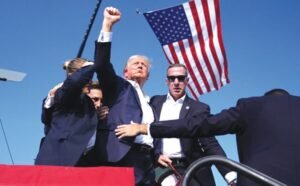
Richard Hakim
Truly, homosexuality is not a new phenomenon, even in Africa. It has existed since the early days of history, at least the story of the biblical Sodom and Gomorrah so tells us. But it was also known as a pervert behaviour, until the 1960’s and 70’s when the political activity of the gays in America forced the scientific community to accept it as ‘normal’ without any scientific evidence.
Argument
The argument on the LGBTQI rights has witnessed two opposing sides: those in favour and those against its endorsement. What informs each argument? Unlike the Western world, whose stand on gay rights is informed directly by their values – a mostly atheistic society that believes there is no God, and therefore humans, being masters of themselves, must be allowed to live, act and do things as they feel – the Ghanaian community, on the other hand, is mostly a theistic society.
Our society has a culture that’s largely informed by the belief in the existence of God. However, there are some people in the Ghanaian society who have registered its support for gay rights. What informs their support for gay rights? With the exception of those who argue from a legal perspective, it has been a matter of logic and empathy.
I have followed the arguments closely, and one line of argument is common with supporters of gay rights: the idea that gay people are human beings and must be allowed to exercise their sexual preference. There are those who also do not see the differences in what gay people are seeking to do and what their critics are already doing.
For example, how is it that people who are living in sexual sin – fornication and adultery – have openly castigated homosexuals for their sexual preferences? It may interest you to know that supporters of gay rights have interpreted this as hypocritical.
But the truth is that what they are seeking to pursue is not only sinful but defies our very identity as image-bearers of God. A person who did not create himself cannot claim he has the right to assume an identity that he desires against that of the Creator. Having said that, homosexuals lament the fact that they were created with such feelings and since they did not decide to feel the way they do, why then can they not be allowed to indulge their feelings.
This is perhaps the part that gets many to empathise with them. This brings me to a more crucial concern: If we have at all taken time to listen to homosexuals, how have we responded? For a person who believes he was created in a certain way and with certain feelings he did not particularly choose, is it enough to tell him it is not right to express his feelings?
Approach
Maybe, the manner in which members of the anti-gay community have registered their stand against the movement is what makes it look more like an act of hate rather than a condemnation. I wish to share two practical events I witnessed a couple of weeks ago. I listened to a religious leader on television who was asked to share his opinion on the subject of LGBTQI rights in Ghana.
Clearly, given his religious values, it was not surprising that he took a stand against it. But I was surprised and disappointed at the tone with which he registered his displeasure. While he quoted some good scriptural texts that obviously vilify the act, his tone and choice of words were rather not “scriptural”.
I believe the way in which a message is delivered is as important as the message itself. When Christ talked about rebuking a brother when he is wrong, he stated that we should do that in love because he knows admonishing the person is not the goal. The goal is to cause a change or redirect the person’s path and it is only love that has the power to do that.
This is precisely my perspective. I believe we need to rethink the manner and tone with which we address this issue. If we are against it because God is, then we must do it God’s way. The way to change a person’s heart has always been through love and this is God’s way. So how do we respond in love?
Finding God does not mean the feelings towards same-sex or any type of sin would not haunt you. It definitely will. But what becomes different is that this time, you recognise that God is far greater than your feelings and you trust him to help you overcome sin.
Nothing like evil?
Indeed, we are in an era where the world believes everything can be redefined; a world that believes there are no “absolutes”; a world that has learned to justify everything; a world that believes there is no such thing as “evil”.
This, however, is not the case. Ghana is a secular country made up of Christians, Muslims, traditional believers and people of other religious faith. None of these sects accept lesbianism and gayism. And as a President once the people you rule abhor these things, equally you cannot accept these cultures on the grounds of human rights. I think that the President should be a strong leader with character and readiness to protect and defend the sanctity of his country. Irrespective of our challenges, our nation remains paramount against any other foreign aim.
Ghanaians must rise up to resist this with all our might. It is time yet again, to see our Civil Society groups, Pastors, Imams, etc to tune high their microphones to speak against this naturally and logically wicked agenda.
Every right thinking Ghanaian should rethink that even in the animal kingdom opposite sex feeling is what is embraced. Let’s embrace the very foundation of their existence – which is God.
The author is a student of the Ghana Institute of Journalism (GIJ).
hakimrichard56@gmail.com







